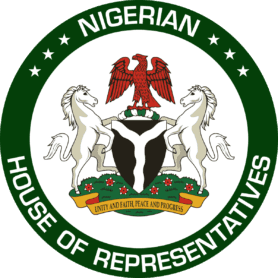The House of Representatives, at its plenary session on the 11th Wednesday, passed a Bill through its second reading to amend the National Eye Centre Act of 2004. This crucial amendment seeks to establish additional specialist eye care centres across Nigeria’s six geopolitical zones, addressing the growing prevalence of eye-related health conditions. The proposed legislation, spearheaded by Deputy Speaker Rt. Hon. Benjamin Okezie Kalu, Hon. Babajimi Benson, and five other lawmakers, highlights the urgent need to decentralize eye care services to meet the demands of an expanding population.
By aiming to bridge the geographical gap in access to quality healthcare, the Bill underscores the government’s commitment to reducing disparities in eye care delivery. The legislation is a strategic response to the rising cases of preventable visual impairments, such as cataracts and glaucoma, which disproportionately affect underserved communities. If implemented, the initiative will enhance healthcare infrastructure, bringing critical eye care services closer to citizens in all regions, thereby improving their overall well-being and quality of life.
House of Representatives: The Current State of Eye Care in Nigeria
The existing National Eye Centre in Kaduna, North-West Nigeria, has served as the primary specialist eye care facility since its establishment. While its efforts are commendable, the centre’s capacity is insufficient to cater to the growing population and the increasing cases of eye-related conditions across the country.
Diseases such as cataracts, glaucoma, and refractive errors continue to afflict millions of Nigerians, particularly in rural areas where access to specialist care is limited. This has led to significant disparities in healthcare delivery, leaving many citizens unable to access essential eye care services.
Key Provisions of the Proposed Amendment
The Bill seeks to establish five additional specialist eye care centres, strategically located across the five remaining geopolitical zones not covered by the original legislation. These centres will provide comprehensive eye care services, bringing critical healthcare closer to underserved communities.
Each centre will operate under its own governing board and academic committee to ensure effective management and foster research in ophthalmology. This structure aims to promote innovation and excellence in eye care, ensuring Nigerians receive the best possible treatment.
House of Representatives: Bridging Healthcare Gaps in Rural Communities
A central focus of the Bill passed by the House of Representatives is to bridge the healthcare gap between urban and rural areas. Rural communities, which often face barriers to accessing healthcare, will benefit from decentralised eye care services. By reducing travel distances and associated costs, the initiative aims to make quality eye care more accessible to all Nigerians.
This decentralisation is not only about healthcare but also about equity and social justice. The lawmakers argue that every Nigerian, regardless of location, deserves access to essential medical services, particularly for preventable and treatable conditions.
House of Representatives: Advocating for Research and Innovation
Beyond service delivery, the proposed amendment prioritises research and academic advancement in ophthalmology. The new centres will be equipped to drive educational initiatives, fostering a culture of continuous learning and innovation in eye care practices.
By investing in research, the government aims to position Nigeria as a leader in ophthalmology within Africa. This will enhance the country’s capacity to tackle emerging eye health challenges and train future generations of eye care professionals.
Call to Action: A Vision for the Future
In urging the House of Representatives to support the Bill, Deputy Speaker Benjamin Kalu highlighted its transformative potential. He described the initiative as a bold step towards ensuring that eye care is not a privilege but a fundamental right for all Nigerians.
The establishment of additional centres will decentralise services, improve access, and ultimately protect the gift of sight for millions. Lawmakers are optimistic that the Bill, once enacted, will set a new standard for healthcare delivery in Nigeria and serve as a model for addressing other specialised health needs.
Table of Contents
Discover more from OGM News NG
Subscribe to get the latest posts sent to your email.














